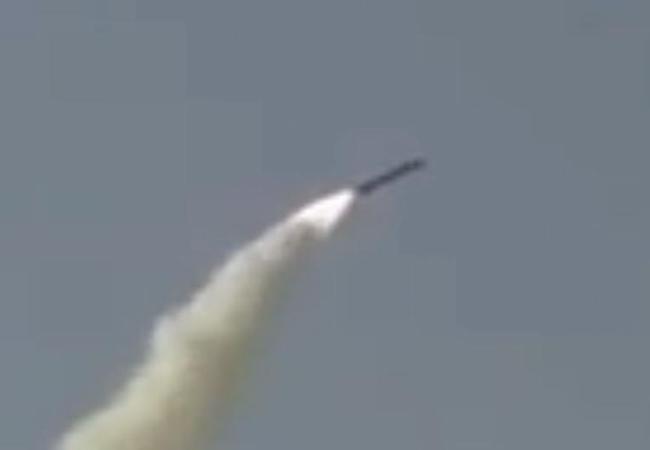
By Zainab Aziz
The region of Pakistan-India border in Kashmir has certainly been the most volatile region for almost two decades. Given the apparent military doctrines of the neighbor nuclear states, the plausible effects of cross-border skirmishes with the exchange of rockets or artillery can lead to an inevitable all-out nuclear war. The conflagration spread through it would be catastrophic. This will have devastating effects on the whole earth bringing “nuclear winter” beyond our apprehensions, resulting in the death of millions of Pakistanis and Indians.
The nuclear arms race between India and Pakistan is turning into a terrifying state. This insecurity has emerged from the decision of Islamabad of deterring the credible aggression initiated from the tank-led invading Indian Armed Force by deploying low-yield tactical nuclear weapons (thus, lowering the threshold of nuclear first use) on the entire region surrounding India at its forward military bases designed for carrying out tactical operations. Deployment of tactical nukes is for the purpose of creating deterrence against the Cold Start Doctrine of India which is “Exclusively Offensive, Blitzkrieg inspired” military strategy, developed by the Indian Military Command (IMC), precisely for Pakistan to replace the obsolete ‘Sundarji Doctrine’ which miserably failed during 2001-2002 impasse with Pakistan. The year 2017 was started off by Pakistan by launching two significant test of proliferating programme which includes: Ababeel medium-range ballistic missile with a claimed multiple independently targetable reentry vehicle (MIRV) and Babur-3 Submarine Launched Cruise Missile.
Pakistan and India are also involved in the conventional arms race and it is perceived that if Pakistan kept on with developing MIRV-ready strategic deterrent, India may reassess its no-first-use nuclear doctrine due to the growing political pressure. India’s nuclear pursuits are also meant for maintaining a suitable deterrent to China. Just recently at the 2017 Carnegie Nuclear Policy Conference, Professor Vipin Narang, an expert on South Asia Nuclear Security gave remarks that India may abandon its “no first use” nuclear policy, if it assessed that Pakistan is likely to resort to the nuclear weapons first, has raised a question about the traditional prudence of South Asia’s strategic stability situation.
Still there can be the ways of reducing nuclear dangers in South Asia. To lessen the antagonism between the two rival neighbors, some concrete measures can be taken which can bring an increased nuclear stability in South Asia. According to the Nuclear Security Index and National Threat Initiative, New Delhi and Islamabad have taken propitious course of action as Pakistan ratified the 2005 amendment to the Convention on the Physical Protection of the Nuclear Material in the final Nuclear Security Submit in Pakistan. While Delhi vowed to prevent the issues regarding nuclear smuggling. Nevertheless, Pakistan and India tried to eliminate the threat emerging from the nuclear security within their own territories. These kind of risks can be managed by the bilateral negotiations based on cooperation which would be in the best interest of Pakistan and India. The two countries must share an intelligence report to do away with the suspicions along with the holding of joint military drills. The current underlying structure for nuclear confidence building measures must be composed as bilateral cooperation framework in order to bring positive effects on the nuclear security situation in South Asia. The terrorist attack in either of the two countries halt the negotiation process. It is now crucial for New Delhi to dissociate the terrorism from the nuclear security. Otherwise, attaining success in nuclear security would be hard.
Secondly, the nuclear installations of both the countries would remain vulnerable until the cybersecurity infrastructure is upgraded and enhanced according to the posed threats. National Cyber Security Policy introduced by India in 2013 could not incorporate the mechanism ensuring robust cybersecurity program as it lacked the comprehensive stratagem that is essential for combatting cybersecurity threats. Pakistan, on the other hand, proposed a cybersecurity law in August 2016. It has its own lacunas as it mainly deals with eradicating the extremist ideology than safeguarding the nuclear sites.
The cooperation of India and Pakistan on issue of cybersecurity seems unlikely at present. The reliable cybersecurity infrastructure also involves heavy investments which neither of the two countries have enough capacities to do it right now. The cybersecurity of the South Asian nuclear facilities can be ensured by the efforts made by the international community lead by the United States to prevent the Stuxnet Style attack carried out by terrorists or hackers.
After the Indian subcontinent was tremored by the 11 nuclear explosions until May, 1998, Pakistan and India did not conduct any nuclear test. Concurrently, both the countries are non-signatory to the Comprehensive Test Ban Treaty (CTBT). In 2016, Pakistan offered India to formulate a bilateral test ban treaty that would legalize the current moratoria on nuclear tests but the India had shown little interest in it. India embracing this opportunity would help bringing strategic stability in the South Asian region.
Since the nuclear bombing of Hiroshima and Nagasaki around 70 years ago, the world has not witnessed the use of nuclear weapons in a wartime. Also in 1998, when the two nuclear states, China and Russia were involved in conventional dispute along the Ussuri River, the strife did not reach to the extent of nuclear war despite of their common long border and the bitter relations, same can be expected from India and Pakistan. Although the Indian subcontinent is influenced by the nuclear rivals with history of hostilities between the two, one can hope for the amelioration of relations. Yet the probability of a nuclear threat cannot be ruled out completely.
Zainab Aziz is a Research Affiliate at the Strategic Vision Institute in Islamabad, Pakistan




